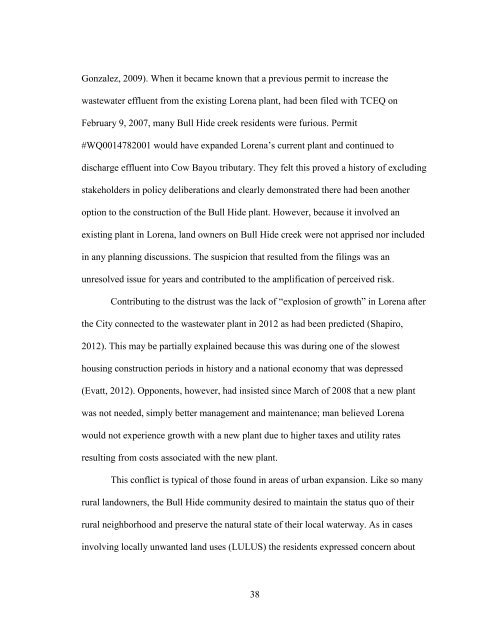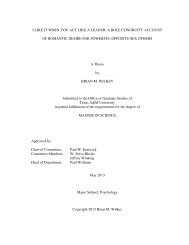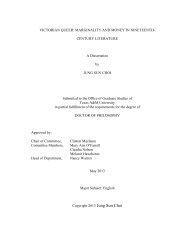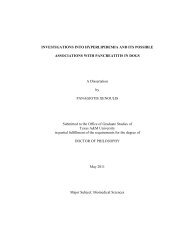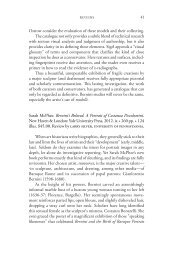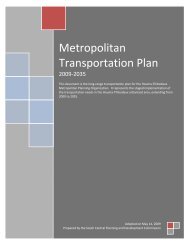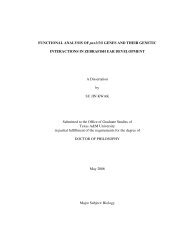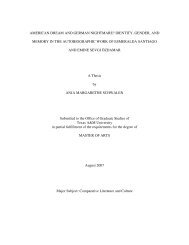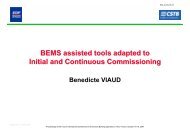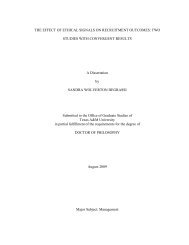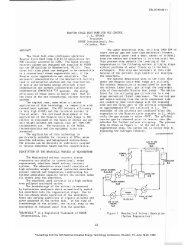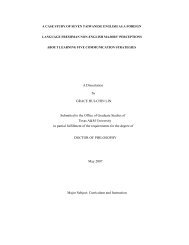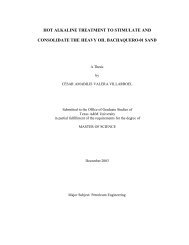PERCEIVED RISK AND THE SITING OF A CONTROVERSIAL ...
PERCEIVED RISK AND THE SITING OF A CONTROVERSIAL ...
PERCEIVED RISK AND THE SITING OF A CONTROVERSIAL ...
You also want an ePaper? Increase the reach of your titles
YUMPU automatically turns print PDFs into web optimized ePapers that Google loves.
Gonzalez, 2009). When it became known that a previous permit to increase the<br />
wastewater effluent from the existing Lorena plant, had been filed with TCEQ on<br />
February 9, 2007, many Bull Hide creek residents were furious. Permit<br />
#WQ0014782001 would have expanded Lorena’s current plant and continued to<br />
discharge effluent into Cow Bayou tributary. They felt this proved a history of excluding<br />
stakeholders in policy deliberations and clearly demonstrated there had been another<br />
option to the construction of the Bull Hide plant. However, because it involved an<br />
existing plant in Lorena, land owners on Bull Hide creek were not apprised nor included<br />
in any planning discussions. The suspicion that resulted from the filings was an<br />
unresolved issue for years and contributed to the amplification of perceived risk.<br />
Contributing to the distrust was the lack of “explosion of growth” in Lorena after<br />
the City connected to the wastewater plant in 2012 as had been predicted (Shapiro,<br />
2012). This may be partially explained because this was during one of the slowest<br />
housing construction periods in history and a national economy that was depressed<br />
(Evatt, 2012). Opponents, however, had insisted since March of 2008 that a new plant<br />
was not needed, simply better management and maintenance; man believed Lorena<br />
would not experience growth with a new plant due to higher taxes and utility rates<br />
resulting from costs associated with the new plant.<br />
This conflict is typical of those found in areas of urban expansion. Like so many<br />
rural landowners, the Bull Hide community desired to maintain the status quo of their<br />
rural neighborhood and preserve the natural state of their local waterway. As in cases<br />
involving locally unwanted land uses (LULUS) the residents expressed concern about<br />
38


